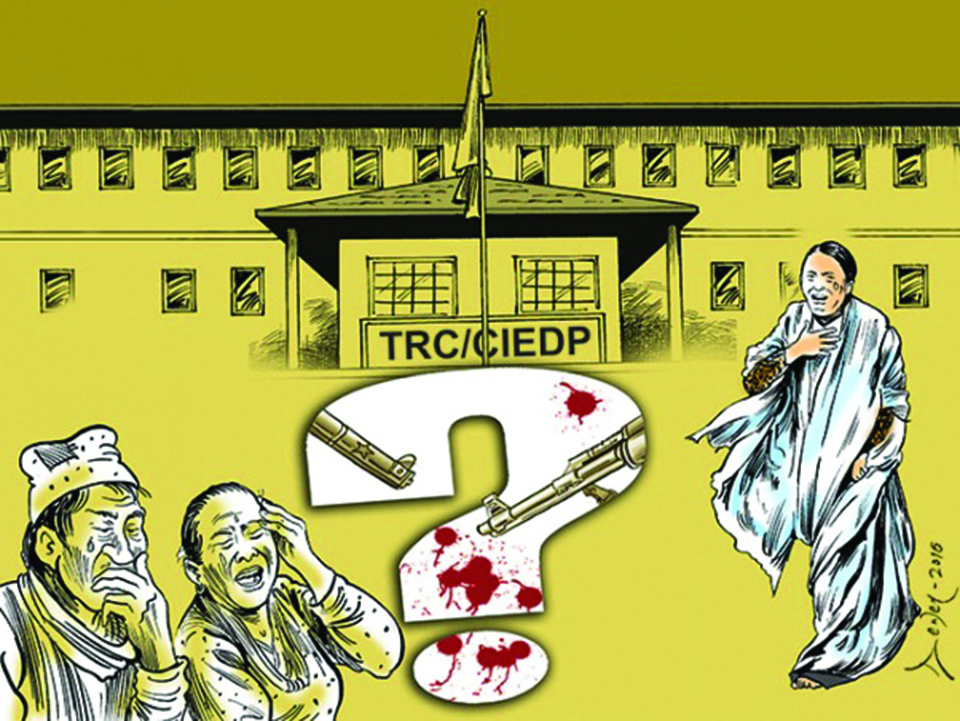KATHMANDU, April 13: The members of two crucial transitional justice (TJ) bodies spent nearly Rs 460 million during their four years plus stay in office. But justice for the conflict victims still remains illusive.
The Commission of Investigation on Enforced Disappeared Persons (CIEDP) has spent Rs 190 million whereas the other TJ body, the Truth and Reconciliation Commission (TRC), spent Rs 270 million in the said four years.
Despite spending millions of rupees in the salaries of commission members and staffers and administrative works, neither of the two commissions could prosecute even a single perpetrator. Neither of the two commissions could provide reparation to even a single conflict victim.
Conflict victims fear whether the complaints and evidences submitted to the commissions are destroyed or leaked. As the commissioners appointed to both the TJ bodies — TRC and CIEDP — retired on Friday, the conflict victims suspect their complaints and evidences collected by the bodies could be leaked or destroyed.
11 years after CPA, conflict victims still await justice

Although the government extended the terms of the commissions by a year, the commissioners working there were asked to wrap up their activities within April 12. Shortly after the government decided to reconstitute the TJ bodies in early February, TRC chief Surya Kiran Gurung and another commissioner Lila Udasi resigned from their positions. The remaining three commissioners, however, retired on Friday even without submitting an interim report to the government.
Marred by internal infighting from the very beginning of its formation back in 2015,
TRC remained far behind in settling complaints registered by the conflict victims. Of the total 62,950 complaints registered with the TRC, it managed to conduct preliminary investigations into just 3,615 complaints.
TRC has forwarded the complaints collected from the victims to its provincial offices. Since only 3,197 complaints were registered at the CIEDP, it managed to scan all the complaints, documents and evidences. The TRC, which received 17 times more complaints than the CIEDP, however, has not protected them well.
“We have adopted all possible measures to maintain secrecy and safety of the complainants and evidences,” said outgoing CIEDP chief Lokendra Mallik, “Scanned documents have been kept safely in second place as well in case of fire or disaster in this office.”
TRC has stored the complaints in Biratnagar, Janakpur, Lalitpur, Pokhara, Tulsipur, Surkhet and Dipayal.
“Keeping the complaints registered at the TRC safe remains a major challenge. It would be better if the commissioners are appointed promptly,” said outgoing TRC member Madhabi Bhatta.
The TJ bodies blame the government for not supporting them in expediting investigation into the conflict-era cases. They argue the whole TJ process was affected due to non-cooperation from the government mainly in promulgating the required laws including reparation and prosecution policies and releasing money for reparation.


































